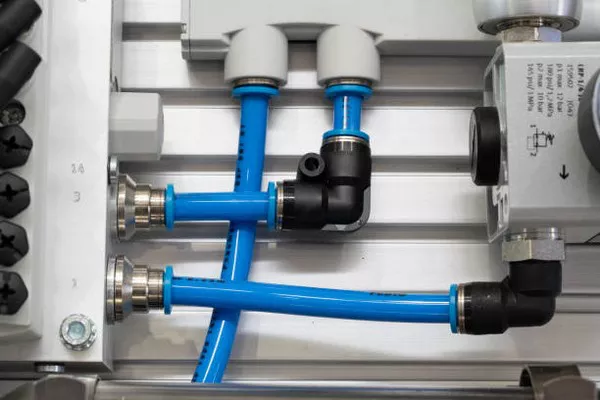Instrumentation engineering is a critical discipline that plays a pivotal role in various industries, ranging from manufacturing and healthcare to energy and aerospace. This field involves the design, development, installation, and maintenance of instruments and control systems that monitor and manage various processes and equipment. In an increasingly complex and technologically-driven world, instrumentation engineering holds paramount importance, and this article explores the reasons why it is an indispensable field in modern industries.
Precision and Accuracy
One of the fundamental reasons for the prominence of instrumentation engineering is its contribution to precision and accuracy in industrial processes. In today’s highly competitive markets, industries demand the highest levels of quality and efficiency. Instrumentation engineers design and calibrate instruments that measure variables such as temperature, pressure, flow rate, and chemical composition with incredible precision. This ensures that processes operate within the desired parameters, reducing wastage and ensuring product consistency.
For instance, in the pharmaceutical industry, instrumentation engineers develop systems to monitor drug manufacturing processes with precision, ensuring the production of safe and effective medications. In the aerospace sector, accurate instrumentation is crucial for guiding aircraft and spacecraft, guaranteeing the safety of passengers and astronauts.
Automation and Control
Automation is a driving force in modern industries, enhancing efficiency and productivity. Instrumentation engineers play a pivotal role in the automation of processes through the design and implementation of control systems. These systems use sensors and actuators to continuously monitor and adjust variables, optimizing operations in real-time.
In manufacturing, automation reduces human intervention, minimizing errors, and increasing production rates. The automotive industry, for example, relies heavily on instrumentation to automate assembly lines, leading to faster and more consistent production. Similarly, in the energy sector, instrumentation engineering facilitates the automation of power plants, enhancing their efficiency and reducing carbon emissions.
Safety and Reliability
Instrumentation engineering contributes significantly to the safety and reliability of industrial processes and systems. Engineers design instruments and control systems that can detect abnormalities or hazardous conditions promptly. When deviations from normal parameters are detected, these systems can initiate safety protocols or shutdown procedures to prevent accidents.
In the oil and gas industry, instrumentation engineers develop systems that monitor pipelines for leaks, ensuring the safety of both the environment and workers. In nuclear power plants, precision instrumentation is critical to monitor reactor conditions and respond to any anomalies swiftly, averting potential disasters.
Data Acquisition and Analysis
Data is the lifeblood of modern industries, driving decision-making and innovation. Instrumentation engineers are responsible for designing data acquisition systems that gather valuable information from various processes. This data is then analyzed to identify trends, optimize operations, and predict maintenance requirements.
In agriculture, instrumentation engineering supports precision farming by collecting data on soil moisture, weather conditions, and crop health. This information helps farmers make informed decisions, maximizing crop yields while minimizing resource use. Similarly, in healthcare, instrumentation engineers design and maintain medical devices that collect patient data, aiding in diagnosis and treatment.
Environmental Sustainability
As concerns about environmental sustainability grow, instrumentation engineering plays a crucial role in minimizing the impact of industrial processes on the planet. Engineers develop instruments and control systems that monitor emissions, waste, and resource consumption. By providing real-time data, these systems enable industries to reduce their carbon footprint and implement sustainable practices.
For example, in wastewater treatment plants, instrumentation engineering is essential for monitoring and controlling the treatment process, ensuring that only clean water is released into the environment. In renewable energy production, such as wind and solar farms, precise instrumentation helps maximize energy generation while minimizing environmental impact.
Innovation and Technological Advancements
The field of instrumentation engineering is constantly evolving, driven by technological advancements and innovation. As new sensors, materials, and control systems are developed, instrumentation engineers are at the forefront of implementing these technologies to improve processes and products.
In the automotive industry, instrumentation engineers are working on the development of autonomous vehicles, which rely on a complex array of sensors and control systems to navigate and operate safely. In the field of biotechnology, instrumentation engineers are instrumental in creating cutting-edge medical devices and diagnostic tools, advancing healthcare practices.
Global Competitiveness
To remain competitive in the global market, industries must continuously strive for excellence in quality, efficiency, and safety. Instrumentation engineering is instrumental in achieving these goals. Companies that invest in instrumentation technologies gain a competitive edge by improving their processes, reducing costs, and producing higher-quality products.
In the semiconductor industry, for instance, precise instrumentation is indispensable for manufacturing microchips with ever-increasing complexity and miniaturization. In the food and beverage sector, instrumentation engineering ensures the quality and safety of products, meeting stringent international standards.
Conclusion
Instrumentation engineering is a cornerstone of modern industries, underpinning precision, automation, safety, and sustainability. The contributions of instrumentation engineers are integral to achieving the high standards of quality, efficiency, and innovation demanded by today’s competitive global markets. As industries continue to evolve and embrace emerging technologies, the role of instrumentation engineering will only become more critical in shaping the future of industrial processes and systems. Its significance in modern industries is undeniable, and its continued development and application are essential for progress and success across various sectors.

